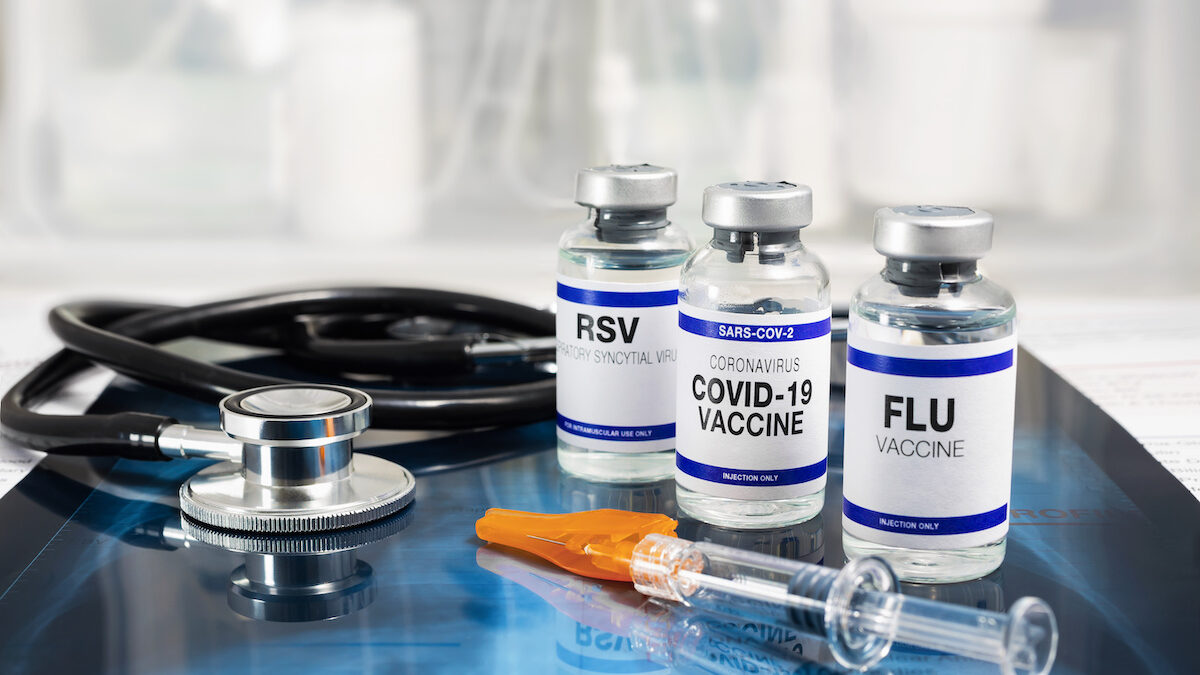Flu, RSV and Covid-19: What is the Tripledemic?

The Tripledemic is the name given to the combination of the three most impactful respiratory illnesses of the modern era: Influenza (flu), Respiratory Syncytial Virus (RSV) and Coronavirus Disease 2019 (Covid-19). This triple threat has caused worldwide concern amongst health professionals, governments and citizens alike.
The combination of these three illnesses has the potential to create a perfect storm of health risks that could cause significant suffering and death. From this, the need to understand these illnesses both individually and collectively has become ever more important. By exploring the nature of the Tripledemic, we can begin to understand the risks posed by this combination of illnesses.
What is Influenza (Flu)?
Influenza is a highly contagious infection of the respiratory tract caused by the influenza virus. Usually, influenza is a self-limiting illness characterized by fever, cough, muscle aches, headache, and malaise.
The flu is known to kill people, especially the elderly and people with other diseases. However, the majority of people recover with little or no complications.
In fact, it is estimated that each year between 3% and 11% of the world’s population gets flu.
The number of deaths caused by flu is not as high as some people might expect. Between 12,000 and 52,000 people died from the flu over the last decade. Young children and healthy adults usually recover from the infection within a week or so.
What are the Signs of Influenza?
The most common signs and symptoms of influenza illness are fever, cough, sore throat, body aches, headache, and fatigue. Symptoms can range from mild to severe. You may have influenza even if you don’t have symptoms.
Experts suggest that everyone receive a yearly flu vaccine to prevent illness. Flu vaccines are often recommended for people at high risk for complications from influenza, such as people with certain medical conditions, pregnant women, and children aged 6 months to 5 years.
What is Respiratory Syncytial Virus (RSV)?
Respiratory Syncytial Virus (RSV) is a member of the human herpes family. It is a disease that primarily affects the lungs of children under the age of two. It is a highly contagious respiratory virus that is responsible for causing infection of the lungs, accompanied by a severe cough and difficulty breathing.
Although the infection is generally not life threatening, it can be very dangerous for young children and those with compromised immune systems.
RSV is the most common cause of bronchiolitis (inflammation of the smallest air passages in the lungs) in infants and young children. Although the infection usually clears up on its own, it can lead to serious complications. This includes pneumonia, breathing difficulties, and even death in infants, children with weak immune systems or heart and lung disorders.
What are the Signs of RSV?
Symptoms of RSV include a runny nose, cough, and difficulty breathing. It is important to know the signs of RSV, as it can be life-threatening in infants. Symptoms of RSV in adults are not as severe, but you should still contact your doctor if you experience any of these symptoms.
What is Coronavirus Disease (Covid-19)?
Coronavirus is a group of viruses that infect many different species, including humans. It has been identified in both animals and humans.
Furthermore, Coronavirus is the causative agent of a wide range of illnesses including the common cold, gastroenteritis and SARS. Coronavirus infection can cause a variety of symptoms, ranging from mild to severe illness, including diarrhea, stomach cramps, vomiting, headaches, muscle aches and coughing.
The symptoms are often present for approximately a week, sometimes less but sometimes more. Coronavirus has been a public health concern since Emerging Disease Conflict (EDC) 2018. The strain currently in circulation is the Omicron BA.5 variant.

What are the Signs of Covid?
You may be suffering from covid if you are experiencing any of the following symptoms:
High fever
Fatigue
Anxiety
Brain Fog
Dry cough, although some people cough up phlegm
Difficulty breathing
Unable to focus or concentrate
What is the Impact of the Tripledemic?
The impact depends on a number of factors including the health of the population and access to healthcare. There may be a significant increase in hospitalization and death due to respiratory infections.
It may also result in increased rates of absenteeism from school and work. Flu, Covid-19 and RSV can lead to economic losses due to decreased productivity and loss of revenue.
What Are The Risks of a Tripledemic?
The primary risk is an increase in the number and severity of respiratory illnesses. Individuals will be at higher risk of contracting these infections. For those who are already ill, it may result in a more serious illness. This increased risk of infection could have significant social and economic impacts.
Beyond the increased risk of contracting respiratory illnesses, the Tripledemic could result in death. The elderly, infants and people with a compromised immune system are at highest risk of death. There is also the possibility of psychological trauma, anxiety and feelings of helplessness.
How Can We Mitigate the Effects of the Tripledemic?
In order to mitigate the effects of the Tripledemic, we need to be prepared. This preparation includes making sure that individuals are healthy and have access to healthcare. It also includes a collective effort to create environments that are inhospitable to these viruses.
This collective effort involves creating individual and community health preparedness plans. As individuals, we can take steps to stay healthy and protect ourselves from contracting respiratory illnesses.
These include washing our hands regularly and frequently, getting enough sleep, and eating a healthy diet. We can also monitor our health and watch for signs of illness so that we can seek appropriate medical care. Finally, we can support public health efforts to reduce the risk of contracting respiratory illnesses.
Tripledemic Precautions: Basic Steps to Staying Healthy this Winter Season
Winter is here, and with it comes the flu, COVID-19, and RSV. It’s important to take steps to stay healthy this winter season, and it’s not as hard as you might think. Here are a few basic steps you can take to keep yourself and your family healthy:
- First, make sure you get a flu shot. This will protect you and your family from the flu and other illnesses that can be serious or even deadly.
- Second, practice good hygiene. Wash your hands often, avoid touching your face with your hands, and use hand sanitizer if you can’t wash your hands.
- Third, stay home when you’re feeling sick. If you think you may have an illness, stay home and rest until you’re feeling better. This will help stop the spread of germs and prevent other people from getting sick.
- Lastly, keep your home clean. Consider spraying jackets, shoes, or any items that you take into public with Lysol.
Wearing a mask is one of the best ways to protect yourself and your community from the spread of illness, especially during the current pandemic. Not only will it help protect you from Covid-19, but it can also help reduce the spread of other respiratory illnesses, such as the flu and RSV. Wearing a mask also sends a message to your family, friends, and neighbors that you care about their health and are willing to take the necessary steps to keep everyone safe.
And it’s not just for going out in public. Wearing a mask at home can be just as important, especially if people in your household are high-risk. Taking these simple steps can help prevent the spread of disease and keep everyone healthy. So don’t be afraid to wear a mask—it’s one of the easiest and most effective ways to protect yourself and your community.
By following these steps, you can help keep yourself and your family healthy this winter season. Please contact us if you have questions or concerns about the tripledemic.



